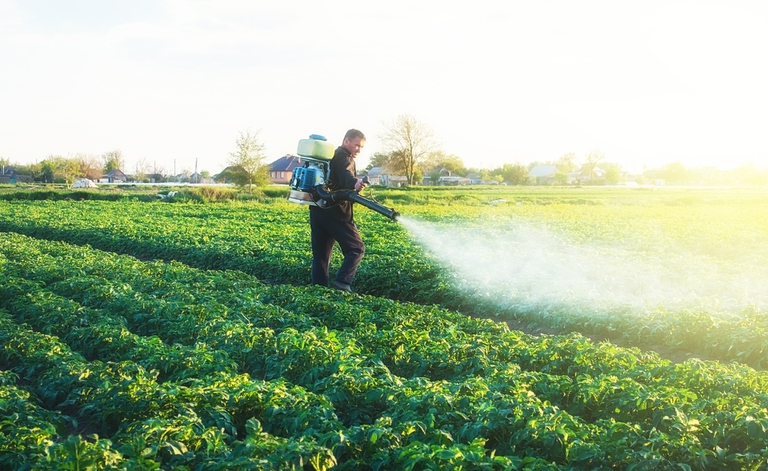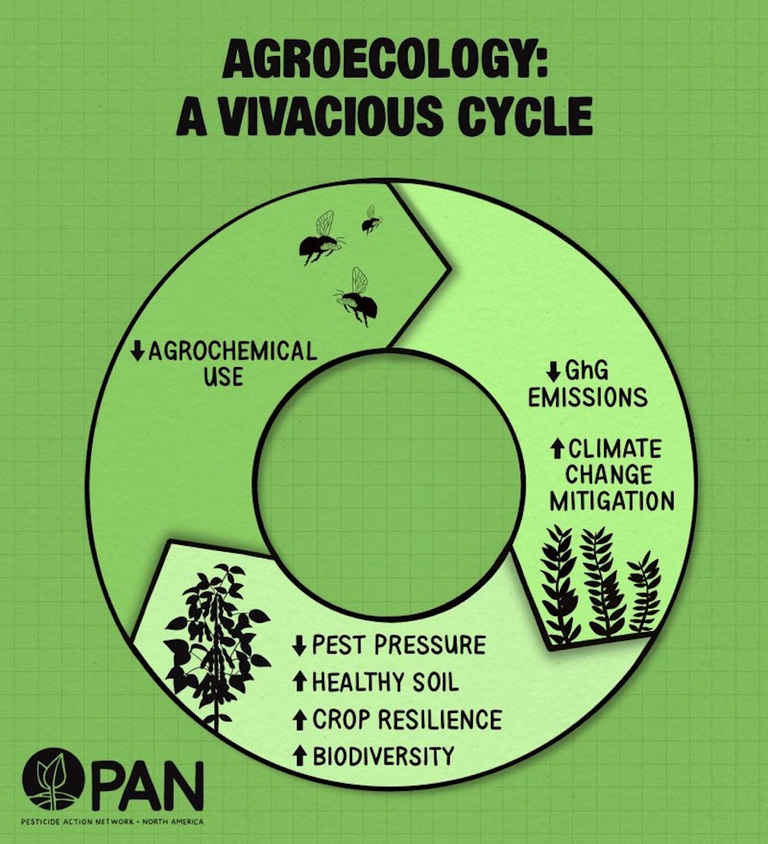https://www.lifegate.it/pesticidi-cambiamenti-climatici
- |
- In a recently published report, Pan UK highlights the need to reduce the use of pesticides to combat climate change.
- The more pesticides are used, the more greenhouse gases are emitted, the more temperatures rise:therefore crops decrease their resilience requiring even more pesticides.
- A vicious circle which, as activists explain, does not serve to guarantee food security, but which on the contrary threatens biodiversity.
There is a vicious circle between pesticides and i climate changes, a mechanism which, moreover, is neglected by policies for the reduction of greenhouse gas emissions.The activists of Pesticide Action Network UK explain it in a reports published last July, asking the British government to include in its climate objectives a focus on reducing pesticides for the benefit of nature and biodiversity.

What do pesticides have to do with climate change
As the document reports, i pesticides are a source of greenhouse gases.99 percent of all synthetic chemicals, including pesticides, are derived from fossil fuels and several oil companies such as Exxon, Shell and Chevron are involved in their production.The packaging, transportation, application and disposal of chemicals also produce greenhouse gas emissions and exacerbate environmental degradation and global warming.With theincrease in temperatures that pesticides help cause, the amount of parasites increases and the resilience of crops decreases, requiring ever-increasing quantities of pesticides and here the vicious circle.Without considering that the increase in the use of pesticides causes insects and weeds to develop a resistence ever greater to herbicides and insecticides.

The report states that the glyphosate, the most used herbicide in the world, it has a carbon footprint of 31.29 kg of CO2 for every kilogram produced.According to Pan UK, in the United Kingdom the use of glyphosate increased by 16 percent from 2016 to 2020, generating 81,410 tonnes of CO2e, equivalent to over 75 thousand flights from London to Sydney.Also mentioned is sulfuryl fluoride, a substance used as an insecticide, which, as a greenhouse gas, would be 5 thousand times more powerful thancarbon dioxide.
Pan UK:“The use of pesticides does not guarantee food safety, but is a threat to the climate and biodiversity”
“The use of pesticides is even presented as a climate mitigation strategy by the agrochemical industry – states Pan Uk – which perpetuates the myth that intensifying food production through the continuous use of harmful chemicals is the only way to ensure global food security while protecting valuable habitats.”On the contrary, according to activists, pesticides threaten the food safety and biodiversity:the use of pesticides is both a direct and indirect driver of climate change and not part of the solution and for this reason politics should develop strategies to reduce their use.

With the Green deal, the European Union has set the objective of halving pesticides and, according to recent EU publications, The use and risk of chemical pesticides was expected to decrease by 6 percent in 2021 compared to 2020.However, he points out Pan Europe who asked for one review of indicators, the numbers contrast with the most recent Eurostat data on sales of all pesticides which highlights an increase of 2.7 percent in 2021 compared to 2020.
